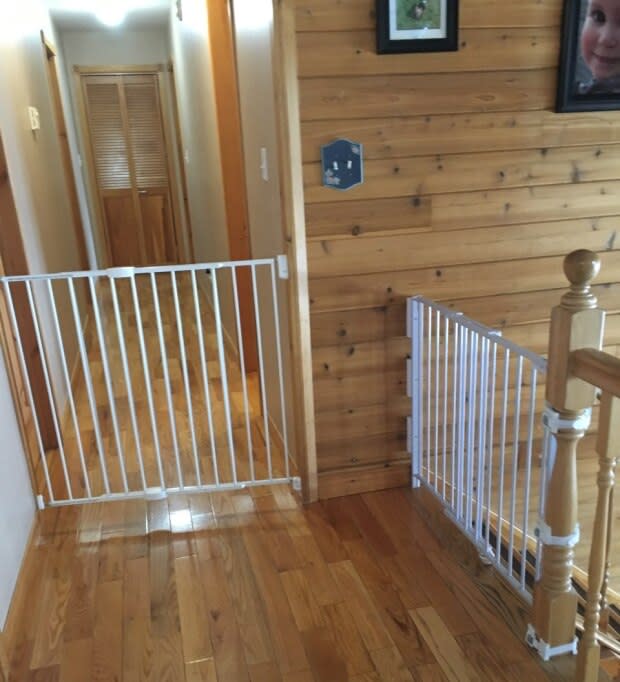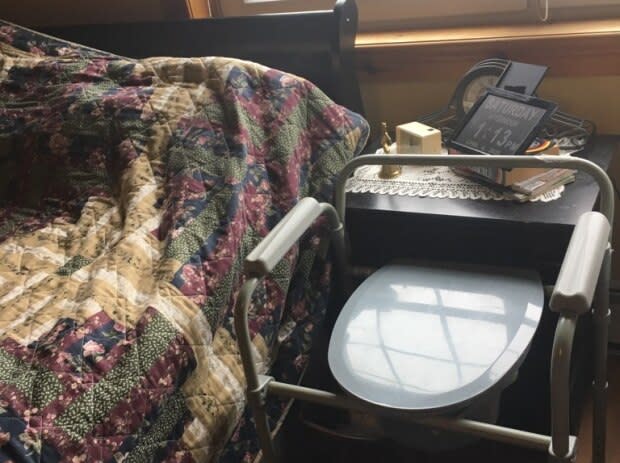The price of caring for a relative at home could be a private care bed
A Nova Scotia woman is worried her mother won't be able to go back to her private room in continuing care after the COVID-19 pandemic is over.
Cathy Cooper took her 78-year old mother, Lenora Crowley, out of the Alderwood rest home in Baddeck, N.S., on March 15, after finding out visitations would no longer be allowed in an effort to slow the spread of the virus.
"We've all been hearing so much about nursing homes and how they're hot spots [for the virus] and it's dangerous.... I'm better off bringing her home," Cooper said.
The nurse was "reluctant" to let her go, Cooper said, but the direction at the time was about limiting visitors and said nothing of people leaving the facility.
Now her mother runs the risk of losing her room to someone else.
30-day holding policy
Under the province's facility placement policy, continuing-care service providers can only hold an empty bed for 30 days before releasing it.
"I do feel it's terrible that she has to make that trade: physical safety, mental well-being or ... my room," she said.
Cooper said she knew about the policy, but reached out to the Department of Health and Wellness to ask for leniency.

She was told her mother's room would not be saved, but that a room would be available for her at the home at some point.
While it's not clear whether that means weeks, months, or even years, Cooper said the response gave her a "little bit of a relief."
When Cooper called the facility to find out what would happen to her mother's furniture and belongings after 30 days, she was told they'd leave them outside for her to pick up.
"That's very disturbing to me," she said.
Isolated in care
Crowley suffers from dementia and has had a series of strokes, which affects her ability to socialize with others.
"She's sort of in isolation when she's at the home because everyone tries, but she's not able to have conversations much," Cooper said.
The province announced last week it would be giving 800 iPads to seniors in long-term care homes to give them a way to connect virtually with their loved ones, but Cooper said using a device like that is outside of her mother's capacity.

The mother-daughter duo is close. Cooper visited her mother in her care home seven days a week, and often took her out on day trips. She said it would be "very difficult" for both of them to be apart.
Cooper is on disability leave and has been recovering from a stroke for the past nine months, so she said her home is already outfitted for a person with mobility issues.
Resident removal 'not encouraged'
Dr. Robert Strang, the province's chief medical officer of health, said in a press conference Friday that he would "not encourage" people to remove their relatives from long-term care facilities.

When it comes to taking seniors out of homes, Strang said there are a few key factors to consider.
Those include whether the family has the ability to provide the necessary care, and if the household can apply the same level of restrictions and cleaning procedures as a care home.
Strang also said if the resident did get sick while in the family's home they would have to be transported to hospital, but if they got sick in the long-term care facility they would likely be cared for within the facility.
A representative from Alderwood said in an email statement it is their understanding that the province will work with the resident and the family to find a solution.
"If families decided to make that choice, then we would work with them and the operator on what would be the appropriate transition," Premier Stephen McNeil said on Friday.
Cooper said she understands the province's position, but she remains confident in her actions.
"I feel at peace with it. I made what I feel is the only decision I could make for myself and my mother," she said.
MORE TOP STORIES


